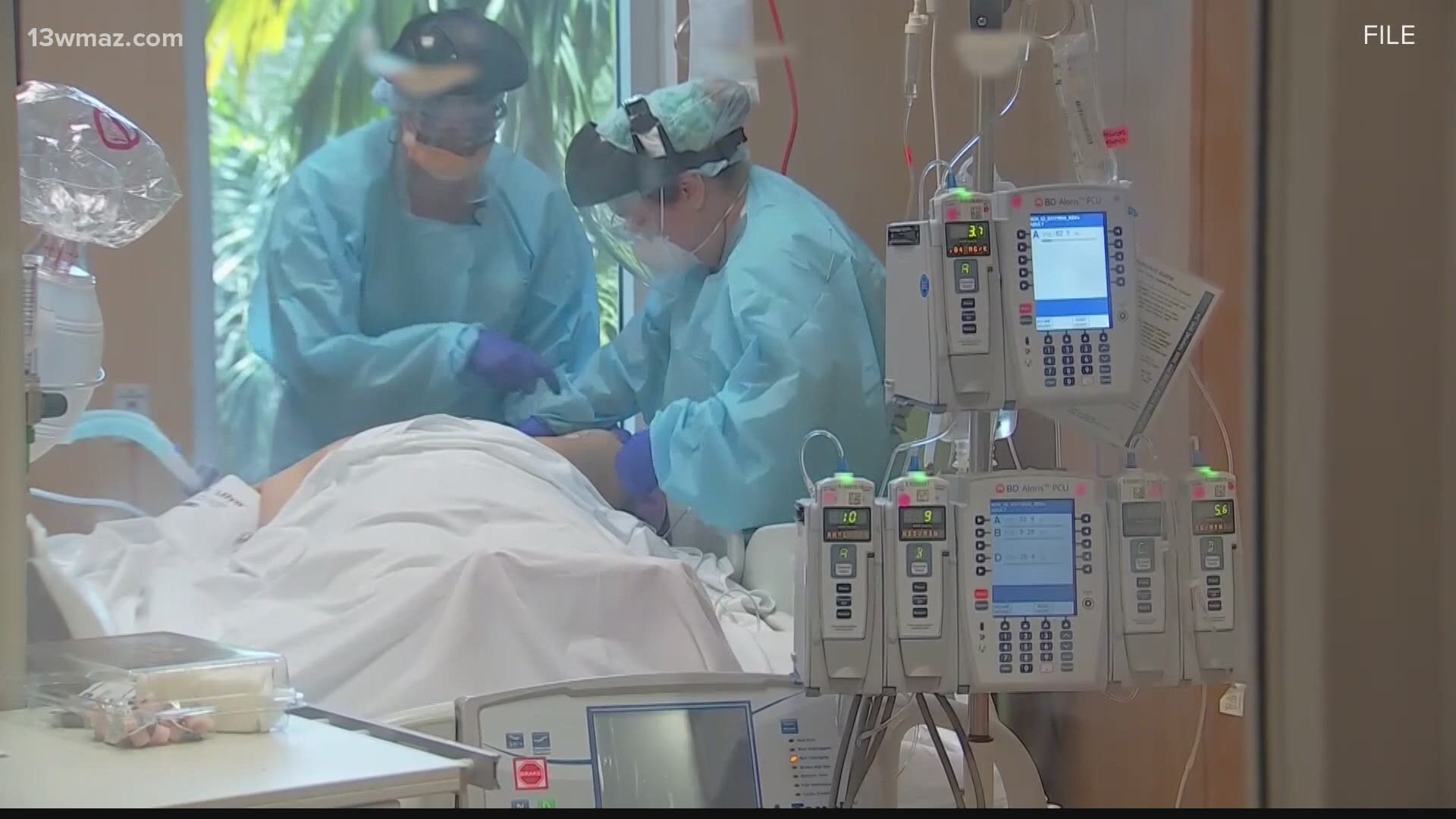WARNER ROBINS, Ga. — For the first time in almost two months, fewer than 100,000 Americans are hospitalized with COVID-19. Here in Central Georgia, we're also seeing a dip in hospitalizations.
When we last checked in with Houston Medical Center back in early January, the hospital was requesting assistance from the National Guard. They had converted their pediatric unit into another COVID-19 unit.
At the time, they had 122 COVID-19 patients.
"We're fortunately better than we were," says Dr. Dan Stewart, the hospital's Chief Medical Officer.
On Wednesday, they had 67 patients.
"We did request for some possible assistance from the National Guard that was not forthcoming. We knew that was probably a longshot," Stewart says. "Since that time, we have moved all the COVID patients from the pediatric floor."
But, they're still on pediatric diversion and sending those young patients to Macon because they're now housing non-COVID, medical surgical patients there.
He says even though their numbers have dropped some, they're still having to shuffle units around to make it work.
"Our ICU is still full," he says. "This third wave was because of, I think, holidays."
Over at Coliseum Medical Centers, Infectious Disease Specialist Doctor Jennifer Hoffman says they've seen a dip too.
On Wednesday, they had 60 COVID-19 patients, compared to almost a month ago when they had 92.
"I'm hoping it's a continued trend and not a fluke."
However, they still have dozens of COVID-19 patients.
"We still have a partial hold on elective surgeries. We still have a lot of patients in the emergency room waiting for beds. So, while we're getting some relief from the pressure, our numbers are still definitely far above average."
She says a few different reasons might have contributed to this slight dip.
"I think a lot of what we're seeing is changes in behavior, so that's definitely helpful and we appreciate it. Some of it is we're past the holidays, so the big family gatherings aren't happening to quite the same degree," she says. "Maybe, at least in the hospitalization case count, we're beginning to see the very first inklings of the vaccination effect."
Hoffman says she's glad to see this trend, but they're still caring for a lot of sick people.
"It seems to me that we're seeing an unusual amount of younger folks, like we have quite a few folks in their 40s and 50s who are in our ICU and who are really not necessarily doing so great. That's of great concern to me, along with the fact that some of these folks have been here since Christmas."
With the UK variant starting to spread in Georgia and the South African variant near our border in South Carolina, Hoffman says that raises some concerns for another possible surge.
"I'm certainly very concerned about that. Let's put it that way. I think it's a race between the new more transmissible variants versus vaccination. Which one is gonna win out? I don't know."
Stewart says because Pfizer and Moderna's vaccine offers protection from at least the UK variant, he's hoping the numbers don't get back up to where they were a month ago.
"I think, just because of the way this thing runs across time, we may see another surgence, another wave, but I'm hoping this wave will be a little smaller peak."
At this point, more than 30 million vaccine shots have been administered across the U.S.
But, that's only 62 percent of the total doses that have been distributed.
Both doctors urge everyone to keep wearing masks and social distancing until you can get your vaccine.

